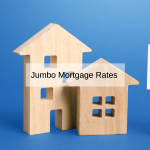FHA (Federal Housing Administration) Mortgage Insurance Premiums play a significant role in the world of home loans financing, particularly for borrowers seeking government-backed loans. Understanding what FHA Mortgage Insurance Premiums are, how they work, and their implications is crucial for anyone considering an FHA loan. Let's delve deeper into this essential aspect of FHA lending.
What is FHA Mortgage Insurance Premium (MIP)?
FHA Mortgage Insurance Premium (MIP) is a fee required for all FHA home loans to protect lenders against losses in the event that borrowers default on their mortgages. Unlike private mortgage insurance (PMI) required for conventional loans, FHA loans mandate both an upfront and annual mortgage insurance premium.
Upfront Mortgage Insurance Premium (UFMIP)
Purpose and Calculation: The Upfront Mortgage Insurance Premium (UFMIP) is a one-time fee paid at closing or rolled into the loan amount. It serves as an initial contribution to the FHA insurance fund, allowing the agency to cover potential losses from defaulted loans.
Rate and Factors: The UFMIP rate typically ranges from 1.75% to 2.25% of the loan amount, depending on various factors, including the loan-to-value (LTV) ratio, term of the loan, and the amount borrowed.
Implications: Including the UFMIP in the loan amount increases the borrower's initial loan balance and monthly mortgage payments. However, it enables borrowers to finance the premium rather than paying it out-of-pocket at closing.
Annual Mortgage Insurance Premium (Annual MIP)
Purpose and Calculation: In addition to the UFMIP, FHA borrowers are required to pay an Annual Mortgage Insurance Premium (Annual MIP) throughout the life of the loan. This premium protects lenders against ongoing default risk.
Rate and Factors: The Annual MIP rate varies based on the loan term, loan amount, and initial loan-to-value (LTV) ratio. It is recalculated annually and adjusted according to the outstanding principal balance.
Cancellation Rules: For FHA home loan requirements with terms longer than 15 years and initial LTV ratios greater than 90%, borrowers must pay the Annual MIP for the entire loan term. Loans with lower initial LTV ratios may allow cancellation of the Annual MIP after reaching a certain loan-to-value threshold and a minimum term.
FHA Mortgage Insurance Premium vs. Private Mortgage Insurance (PMI)
Purpose: Both FHA Mortgage Insurance Premiums and Private Mortgage Insurance (PMI) serve the same fundamental purpose: to protect lenders against losses resulting from borrower defaults.
Differences:
- FHA Mortgage Insurance Premiums are mandatory for all FHA loans, while PMI is typically required for conventional loans with down payments below 20%.
- FHA Mortgage Insurance Premiums have fixed rates and terms, whereas PMI rates and terms may vary depending on the lender, loan type, and borrower's creditworthiness.
Cost Considerations: The cost of FHA Mortgage Insurance Premiums and PMI can significantly impact the overall affordability of a loan. Borrowers should carefully compare the costs and benefits of FHA loans versus conventional loans to determine the most suitable option.
Pros and Cons of FHA Mortgage Insurance Premiums
Pros:
- Lower Down Payment: FHA loans offer down payments as low as 3.5%, making homeownership more accessible to borrowers with limited savings.
- Flexible Credit Requirements: FHA loans are more lenient in their credit score requirements compared to conventional loans, making them accessible to borrowers with less-than-perfect credit histories.
Cons:
- Higher Costs: FHA Mortgage Insurance Premiums can significantly increase the overall cost of borrowing compared to conventional loans with PMI.
- Lifetime Mortgage Insurance: Unlike PMI, which may be cancelable under certain conditions, FHA Home Loan Mortgage Calculator Insurance Premiums are typically non-cancellable for the duration of the loan term.
How to Calculate FHA Mortgage Insurance Premiums
UFMIP Calculation: To calculate the Upfront Mortgage Insurance Premium (UFMIP), multiply the loan amount by the UFMIP rate determined by FHA guidelines.
Annual MIP Calculation: To calculate the Annual Mortgage Insurance Premium (Annual MIP), determine the initial loan-to-value (LTV) ratio, loan term, and loan amount. Then, apply the appropriate Annual MIP rate to the outstanding principal balance and adjust it annually based on the remaining loan balance.
FHA Mortgage Insurance Premiums are integral to FHA loans, offering benefits such as lower down payments and flexible credit requirements. However, borrowers should carefully consider the long-term implications of FHA Mortgage Insurance Premiums, including higher overall costs and non-cancellable insurance. Understanding the nuances of FHA Mortgage Insurance Premiums empowers borrowers to make informed decisions about their home financing options and achieve their homeownership goals.
Frequently Asked Questions (FAQ) - What Is An FHA Mortgage Insurance Premium?
Q1: What is an FHA Mortgage Insurance Premium (MIP)?
A1: An FHA Mortgage Insurance Premium (MIP) is a fee charged by the Federal Housing Administration (FHA) to borrowers who take out FHA-backed loans. It serves as a form of insurance for the lender against losses in case the borrower defaults on the loan.
Q2: How does FHA Mortgage Insurance Premium differ from other types of mortgage insurance?
A2: Unlike private mortgage insurance (PMI) required for conventional loans, FHA Mortgage Insurance Premium is specifically associated with FHA-insured loans. While both PMI and MIP serve similar purposes, the requirements and rates may vary.
Q3: Why is FHA Mortgage Insurance Premium required?
A3: FHA Mortgage Insurance Premium is required to protect lenders from losses incurred due to borrower defaults. Since FHA home equity loans typically allow borrowers to make smaller down payments and have more lenient credit requirements, the insurance premium helps mitigate the increased risk associated with these loans.
Q4: Who pays the FHA Mortgage Insurance Premium?
A4: Borrowers who obtain FHA-backed loans are responsible for paying the FHA Mortgage Insurance Premium. This premium can be paid upfront as part of the closing costs or rolled into the loan amount. Additionally, borrowers may also pay an annual MIP as part of their monthly mortgage payments.
Q5: How is the FHA Mortgage Insurance Premium calculated?
A5: The calculation of the FHA Mortgage Insurance Premium depends on several factors, including the loan amount, loan-to-value ratio (LTV), and the term of the loan. The upfront MIP is typically a percentage of the loan amount, while the annual MIP is based on the outstanding loan balance and is divided into monthly payments.
Q6: Are there different types of FHA Mortgage Insurance Premiums?
A6: Yes, there are two types of FHA Mortgage Insurance Premiums: upfront MIP and annual MIP. The upfront MIP is a one-time fee paid at closing or rolled into the loan amount, while the annual MIP is paid as part of the borrower's monthly mortgage payments.
Q7: Can the FHA Mortgage Insurance Premium be refunded or canceled?
A7: The FHA Mortgage Insurance Premium is not refundable once paid. However, borrowers with FHA home renovation loan may be eligible to cancel their annual MIP once certain conditions are met, such as reaching a specific loan-to-value ratio and maintaining timely mortgage payments.
Q8: How does the FHA Mortgage Insurance Premium affect borrowers?
A8: The FHA Mortgage Insurance Premium affects borrowers by increasing the overall cost of obtaining an FHA-backed loan. While it allows borrowers to qualify for loans with lower down payments and credit scores, it also adds to the monthly mortgage payment and the total loan amount.
Q9: Can the FHA Mortgage Insurance Premium be tax-deductible?
A9: In some cases, the FHA Mortgage Insurance Premium may be tax-deductible for eligible borrowers. However, the deductibility of mortgage insurance premiums is subject to IRS guidelines and may vary based on individual circumstances. Borrowers should consult with a tax advisor for specific advice.
Q10: Is the FHA Mortgage Insurance Premium the same as homeowners insurance or property taxes?
A10: No, the FHA Mortgage Insurance Premium is not the same as homeowners insurance or property taxes. Homeowners insurance protects the property and its contents against damage or loss, while property taxes are levied by local governments to fund public services and infrastructure.
Q11: Can the FHA Mortgage Insurance Premium be waived or avoided?
A11: The FHA Mortgage Insurance Premium cannot be waived for FHA-backed loans. However, borrowers may explore alternative loan options, such as conventional loans with private mortgage insurance (PMI), which may have different requirements and cost structures.
Q12: How does the FHA Mortgage Insurance Premium contribute to the stability of the housing market?
A12: The FHA Mortgage Insurance Premium contributes to the stability of the housing market by facilitating access to homeownership for borrowers who may not qualify for conventional loans. By providing insurance against default, it encourages lenders to offer FHA-backed mortgage loan insurance with more favorable terms and lower down payment requirements.














